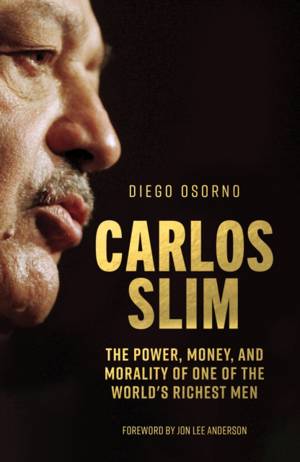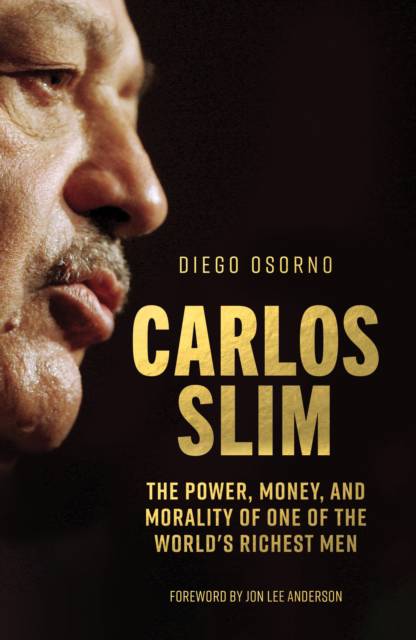
Wil je zeker zijn dat je cadeautjes op tijd onder de kerstboom liggen? Onze winkels ontvangen jou met open armen. Nu met extra openingsuren op zondag!
- Afhalen na 1 uur in een winkel met voorraad
- Gratis thuislevering in België vanaf € 30
- Ruim aanbod met 7 miljoen producten
Wil je zeker zijn dat je cadeautjes op tijd onder de kerstboom liggen? Onze winkels ontvangen jou met open armen. Nu met extra openingsuren op zondag!
- Afhalen na 1 uur in een winkel met voorraad
- Gratis thuislevering in België vanaf € 30
- Ruim aanbod met 7 miljoen producten
Zoeken
Carlos Slim
The Power, Money, and Morality of One of the World's Richest Men
Diego Osorno
Hardcover | Engels
€ 26,45
+ 52 punten
Omschrijving
Can one of the richest men in the world be a good person? The rich are not like us. Great wealth brings both power and immunity, a pairing that opens a yawning moral abyss at the feet of the world's billionaires. Carlos Slim is one of eight people whose combined wealth equals that of the 3.6 billion people who make up the poorest half of humanity. A businessman who dominates telecoms and global real estate, and a major shareholder of the New York Times, Slim exerts a degree of power in Mexico unmatched by any politician. The biography of Carlos Slim, one of the richest people of all time, is a case study in the ethical and psychological effects of extraordinary wealth. Not just the tale of the first man from a developing country ever to reach the top of the Forbes list of billionaires, it presents a living embodiment of the financial mentality of our time, a man who mistrusts politicians and believes the market to be the answer to everything--even corruption. In short, Slim's story is that of Latin America's last half century and indeed the wider world. After years of thorough investigation, Diego Osorno has produced an extraordinary portrait detailing the effects of great wealth. His time with Slim forces Osorno to pose an age-old question: What does it profit a man if he gains the world and loses his own soul?
Specificaties
Betrokkenen
- Auteur(s):
- Uitgeverij:
Inhoud
- Aantal bladzijden:
- 336
- Taal:
- Engels
Eigenschappen
- Productcode (EAN):
- 9781786634375
- Verschijningsdatum:
- 24/09/2019
- Uitvoering:
- Hardcover
- Formaat:
- Genaaid
- Afmetingen:
- 160 mm x 234 mm
- Gewicht:
- 498 g

Alleen bij Standaard Boekhandel
+ 52 punten op je klantenkaart van Standaard Boekhandel
Beoordelingen
We publiceren alleen reviews die voldoen aan de voorwaarden voor reviews. Bekijk onze voorwaarden voor reviews.











